A few weeks ago I received this email from Greg Mulligan, the son of 2nd Lt. James R. Mulligan. He had been researching his dad's war experiences and had stumbled upon this blog. I was overjoyed! I had been searching for several years any family members from the crew of the 415th Bomb Squadron the Green-Eyed Ikey.
Jim Mulligan was the 11th crew member and was assigned to this particular mission as an ADO
(Air Discipline Officer). His role and responsibility was to keep the formation intact. During the
mission he was the only one who could make radio contact with the other bombers.
Greg provided me a bio and a CD. The CD was a taped recording by his nephew, Chris, for a school project.
The following is a verbatim transcription of the CD of Jim Mulligan as he
recalls some of the details of his WWII experiences.
* * *
"Hi Chris, this is your Uncle Jim. I'm returning your tape which your grandmother delivered to me with your note asking about some of my experiences specifically during World War II.
To preface that, I was born in 1921; I'm now 75 years old. I was born and raised in the midwest as your grandmother and grandfather were. I started out as a young person while going to school working sometimes for a dollar a day or less and my lunch, and this prevailed through the depression years. My father had a very difficult time during these years because I'm the oldest of nine children.
I had six brothers and two sisters. Three of the boys right after me are dead today. All the rest are healthy. My folks are gone however. I found that life during those years is something that one does not forget in that prices were cheap, wages were cheaper and nonexistent. It was very difficult to get a job and when one did get a job it wasn't any great thing. It was a very menial task. Most people that had jobs were very fortunate. But I went to 13 different schools throughout high school and after high school I did not have the money to go to college and I was told that we would probably be in the war before long since I was in the national guard unit in my hometown.
As it turned out I went into federal service from the state national guard November 29th, 1940. I had been in the service for about a year when I took a discharge from the national guard unit and had gone into the federal service and was stationed down in Cape Claiborne, Louisiana. I reenlisted in the regular Army Air Corps. It was called the United States Army Air Corps during those years when it started. Today it is the separate branch of the service as you know referred to and known as the United States Air Force. I was still in Cape Claiborne waiting to be transferred to a regular Army Air Corps unit when Pearl Harbor happened December 7th. A couple of weeks later I ended up in St. Louis, Missouri.
You had asked about interesting things that happened along the way during my time in the national guard unit. I made a lot of friends. I had come off of a farm, small town, was not very sophisticated. I needed a lot of experience just to get along in life. But I can remember that before I went into the service in 1937, I was 16 years old and I bought a car, a 1924 Dodge for $25. The license per year was only $3. I never had insurance, I never bought a gallon of gasoline in the four years that I owned the car. I guess it was a little closer to three. I never changed the oil, and I never had a flat tire. Since I had a car I had lots for friends who didn't and they were always wanting to go some place. I had said, well, fine, I will go there but you have to buy the gas. And my stimulation was that they had to buy enough gas so that I could get there and get back with some left over. With this method in place, as I say, I never bought any gas...well, occasionally I may have bought a few gallons...but for almost the entire time. I sold that car in 1940 in October for $75. I which I had it today. I will never forget it. The first car a boy has is something quite memorable.
But back to 1940. I got inducted into the United States Army Corps in Jefferson Barracks in St. Louis, Missouri. We had ridden up there with a mans that had been transferred to the air corps also such as I was plus three other fellows. Five of us had rode up in his car. Two of those fellows was Bob Dau and Bob Auringer. Bob Auringer is from Charles City. It was through Bob that I met your Aunt Lois in 1941. We were stationed in St. Louis for about a year and we volunteered for a glider pilot program because we didn't want to stay in St. Louis doing clerical work. We worked in a classification center processing all of the new inductees into the service right after the war. I can remember we used to be able to buy a pas in St. Louis, we would ride the streetcar for a whole week any place as long as we liked for 50 cents. Terrific buy. We saw the whole city more than once. After having been there for about a year, we volunteered for the glider program as I said. As we went from St. Louis to Smyrna, Tennessee. From there we went to Rochester, Minnesota to start our flying. And we flew small airplanes, 65 horsepower Cubs, Aeroncas, Taylorcraft and Fairchild. We always tried to fly the Fairchild because it had 10 horsepower more; it was 75.
We went through that program latter part of '43 until about October5 when the glider program was closed because they were having too many casualties in the glider program. They were coming in when they would cut them loose from their tow plane and they were crashing and too many men were being killed. A glider pilot was expected to be the pilot while in the air and once you got on the ground you became a platoon sergeant. We were staff sergeant pilots.
When they closed the program I was offered the opportunity testing for aviation cadets. One had to have two years of college or pass a written exam. I had to opt for the written exam which I passed and went into the cadets. I trained in the cadets for almost a year and graduated as second lieutenant. Went to a lot of places, flew to a lot places, and had a lot of experiences. I never crashed an airplane, I never damaged one other than the one that I had bailed out of during the war. But I had things happen that were frightening and things that were fun, and some day we should sit down and talk about them if you would like. But when I left the glider program and went to the cadet system, I also met another friend whom I went through the cadet system with completely from beginning to end and we graduated together from Waco, Texas Laughlin Air Force Base.
After graduation I went to instructor school to become an instructor pilot and I was an instrument flying instructor, which I did for about five months. And at that time they were closing the school and I went to Basic 24 Transition which means you go to fly B-24s and learn how to fly them and all of the things about them. Later on we were assigned crews and I was in a crew and trained in Pueblo, Colorado.
In May of 1944 we said out of New Port News, Virginia to Africa. We landed in Algiers and were there for about two weeks stationed at an air base inland, started our flying with the 98th Bomb Group. At that time we were then transferred to Italy since we had captured Italy from the Germans and Italians and we were moving forward. I did not go over Anzio Beach Heads, however, I did go over Ploesti on the fourth raid. History books tell about Ploesti, it was a really turning point in the war in bombing. But we arrived in Italy and were stationed in a small town south of Bari, Italy down in the heel of Italy called Leece, L-E-E-C-E. It was an Italian air base which had been captured and we renovated it for the 98th Air Group. I flew 34 missions from that base over Yugoslavia, Greece, Romania, Italy, Germany, Southern France and Austria.
We lost a number of friends who were shot down but I fortunately always came back. I was stationed there when I went on a mission in March 15th, 1945 and we went to Vienna, Austria to bomb the marshaling yards. Marshalling yard is where they have their collection of railroad trains pending unloading or shipping back to various points. It's a big set up. It's really something looking at it from the air is very unusual to see. We don't see it from the ground. Prior to that two weeks before, I had been on a secret mission over Berlin. I had taken two people dressed as civilians and we flew at 25,000 feet, which is quite high in those years, and in a overcast to Berlin and dropped them off. They were going down to make contact with the German people with the underground and opposed to Hitler. And I can remember the girl coming up and she kissed me on the cheek and she said, "goodbye Jim, maybe we will see each other some day." I have never heard from them.
Back to the 15th of March. I was on the lead ship with a pilot named Charles Estes who was a the lead pilot. I was the air discipline officer on this mission. And we went over Vienna. We lost four airplanes out of our seven ship formation over the target, and we were hit quite badly and lost two engines by the time we were 100 miles south of Vienna.
We decided that the best thing to do since we were losing altitude so rapidly was to bail out which we did. We all got on the gourd safely except we got injured. When I came down I hit the edge of a stone roof building and it broke my shoulder and my left foot and cracked a vertebrae in my back. We were picked up by Tito's partisans and taken to a small town and given medical help and we were fed whatever they had which wasn't much.
After having been there about four days we started moving by various mode of transportation. We left the small town on a hay wagon pulled by a couple of mules. Later on we came to a small narrow gauged railroad which we rode for a short distance. We then had to go through the German line because we had come down behind their line when we bailed out. We went through that by sneaking through at night. The Germans were in retreat, the Russians were pursuing them, and we were bombing them. We used to watch daily when the airplanes would go over and you could pick out our own squadron to bomb again.
We went for another three or four days traveling and we ended up on evening at a place where we were supposed to get something to eat. It turns out it was an old yule, sheep that they had killed and they boiled it in a big drum which had been cut in half like a 55-foot gallon cut in half with a fire built under it and water. Being hungry I ate some of it. I got so sick that I can't stand the thought of eating lamb or mutton to this day. I can't even stand the smell. I think it's a shame because apparently people like lamb. I know your grandmother does.
A few days later we were picked up by some different partisans and were taken to the mountains when we came across a German patrol. It was at night and probably the only reason I'm alive today is that I kept my parachute as most of us did as a blanket, and I was rolled up in my parachute lying under a tree in the snow and they didn't see me. A number of the partisans were killed and our crew all survived and we went on from there. Two days later we came across a Russian patrol and they were going after the Germans pursuing them up throughout the valleys. They had come up through Sarajevo which is a way we came out. We went through all of that area where they have had all of this fighting and all of the bloodshed here in the last couple, three years.
It was there that we met Tito. We had dinner one evening with him and some of his people. It seemed that most of the people we met in Yugoslavia had someone who spoke English. They had worked in the steel mills in the United States during the '30s and made their money and went back to Yugoslavia to live. One gentleman showed me his car in the garage hidden under a woodpile. It was a 1937 Ford that had 4000 miles on it. It was just like new. A two-door 1937 Food. It had a 60 horse power engine in it. It was the smallest one of the V-8s that Ford ever built. We went to a lot of their homes and were invited to parties, to dances. It seemed as though they all wanted to do something for us.
After about two weeks we arrived in a place called Split, Yugoslavia on the coast of Yugoslavia on the northern end of the Adriatic Sea, after two days there where everyone had dysentery and felt terrible. We got on a small sailing boat and sailed down the coast of Yugoslavia to the Isle of Vis, V-I-S. There we went ashore and got a little better food and that evening we got on a small steamship and went across the Adriatic Sea to Bari, Italy. When I went overseas we went over on the Liberty Ship, and I got so sea sick that I wanted to die and I couldn't. But that was nothing compared to how sick I got on this small steamer going across the Adriatic Sea. That was absolutely horrible. And I wasn't the only one; it seemed like everyone on that ship both civilians and the ten military people that I was with were all the same.
When we got back to Bari, Italy we went to a hospital where they gave us a ---they clipped all of our hair off and took all of our clothes and threw them in an insinuator. Had us take three showers. In between each shower they would use a flip gun which is like a thing that you spray roses with with dust and dusted us for lice. We would scratch our hair and they'd run down our neck and wait until we got through scratching and go back up into our hair. They were pretty bad. There we had ourselves taken care of, and after a couple of weeks we were sent back to our unit. Your Aunt Lois was notified I was missing in action but it was two weeks after I was missing that she got the telegram. By that time I had arrived at an allied mission -- by allied I mean the United States, England, Britain, all the allies -- at a mission in Yugoslavia had a short wave radio and they radioed out we were alive and we were on our way out. I was never a capture, we were always evaders.
We came out of the hospital and went back to our units or to our single unit, our 415th Bomb Squadron of the 98th Bomb Group. It was discovered then that they were going to be transferred back to the United States to be trained in B-29s, and since we were not there when the decision was made to send us back, we were not on orders to come back, but rather we were transferred to a new unit. I was transferred to the 465 Bomb Group, the 780th Bomb Squadron in Foggia, Italy. Actually a small town outside of it. It's very difficult to find called Cerignola. The operations officer of that squadron was missing in action for about a week and the commanding officer of that squadron turned out to be a student o mine, a student officer --- in other words, an officer going through getting pilot training but as an officer not as a cast. He saw my name on the transfer into the group and picked me up and took me to the squadron and he said, you're the new operations officer. That on about the 3rd of May. We flew a mission every day from that time on until the 8th when Germany surrendered. After that happened we were then disbanding the unit and we were shipping everything home to the United States. Being operations officer I was one of the last people to leave the squadron and I was transferred to a unit in Bari, Italy which also was an operational unit scheduling pilots to fly back to the United States.
After being there until July, I finally worked it around to getting myself put on one of the orders so I then flew back from Italy to Africa to the Azores Islands and to Gander Field Newfoundland and into Hartford, Connecticut. When I was ready to take off for Gander Field from the Azores, I had trouble with an engine. So I went back into the park stand where you park airplanes and we changed the magneto on the thing. During that time I went to operations and advised them to tell Gander Field Newfoundland we were delayed in taking off about three-and-a-half hours. The flight from the Azores to Gander Field was just about the maximum we could fly in a B-24. We were own our way when an airplane was calling our numbers. It was a search and rescue. We were so long overdue getting to Gander Field that they thought we were in the drink and they were looking for us. I told them on the dado that if they look up at about 11:00 about 5,000 feet above them they would probably see me. His expression was, 'what the hell are you doing up there?' I said, 'this is where I'm supposed to be, not down there.' He laughed and said, 'yeah, I guess you're right.' He said, 'what's the deal?' I said, 'I wired Gander from the Azores that I was going to be about three-and-a-half hours taking off. That should have been recorded. We're not missing, we're on our way, everything is fine.' We landed in Gander Field in a snow storm. That wasn't pleasant but we stayed there for a day and the snow passed and they plowed the runway and we took off.
We landed in Hartford, Connecticut. We taxied up where they parked the airplanes and told us to take all of our gear out, but before any of that happened I was sitting in the seat looking out the window when a Red Cross canteen truck pulled up. And she didn't ask me what I would like, she just looked up at me and said, 'would you like a pint or would you like a quart?' I said 'I will take a quart.' And she was talking about milk. Everybody in the airplane just sat down where they were and drank a quart of mil and we ate cupcakes. It seems as though we couldn't get enough of milk, salads or desserts when we got back. Those were the things we missed. I went from there to the separation center for the airplanes and turned it in and turned in all the rest of our equipment, and were told if there was anything in any of the pile we could go and help ourselves which we did, we took a number of things and brought them home because all they were going to do was throw it in the junk.
I went from there to St. Louis again to Jefferson Barracks and just before I got there, I called your Aunt Lois and told her that I was there. She and I had gotten married when I was in Waco, Texas in November 1943 when I was in basic training flying PT-13s. Your grandmother Jean was a bridesmaid. We got married in Winfield, Kansas. We went back there about 26 years later and visited the church and looked around where we had gotten married.
You speak of values. We had a wedding and then we had a wedding dinner in which we had eleven people. We had a cake and we all had steak and the bill was only $25 including the tip. It's hard to believe the difference in the values one has today and what they are and were then.
I know this is rather sketchy. It's not maybe what you all want or need but to my recollection, it's about as close as I can come without branching off into a lot of details. I have been married to your Aunt Lois coming on 54 years and it has been very wonderful. And you know your cousins and your second cousins. I hope that this serves a purpose for what you need. I'm sure that if you do a good job on writing it up and smile at your teacher, she just might give you an A.
Bye to you and your folks and thank you for asking me. Bye-bye.
Second Lt. James R. Mulligan
* * *
In closing, Greg wrote from his dad's bio that after leaving the service his dad returned to Charles City, IA where his wife was staying with her parents. He went to work for State Brand Creameries in Mason City, IA. He was offered a job of plant manager in Los Angeles, CA and in the summer of 1946 he and Lois moved to CA.
Jim and Lois (Jung) had three children: Greg ('46), Jeff ('49) and Susan ('52). Their home was Alhambra, CA until 1955 when they moved to West Covina , CA. They lived there until their passing. Jim died September of 2000 and Lois in March of 2003. Jim formed his own company, Mulligan Sales, that was operated until 2010. For many years, the employees would give Jim and Lois a Christmas gift. One year they gave Jim a leather bomber jacket and a ride on the Collings Foundation B-24. He took great pride in what he had done and accomplished and thoroughly enjoyed that ride.
Jim and Lois enjoyed traveling in their motor home and spending time in their cabin at Lake Arrowhead, CA. Jim spoke very fondly of the many men he knew from the Air Corps. Over the years Jim stayed in contact with several including Charlie Estes, Ernie Swanson, Leonard Rau, Bob Dau and Bob Auringer.
* * * Greg, his son, concludes with his own personal thoughts...though many years have passed, it still boggles the mind to try to put in perspective what these amazing men accomplished. The hardships endured overseas and at home are incredible. The number of casualties is staggering, yet day after day they answered the call, got in their planes.
I am honored knowing the accomplishments of Jim Mulligan and all the other men of the Fifteen AF 98th BG, 415th Sqdn.
......Greg Mulligan
 |
| 2nd Lt. James R. Mulligan, Purple Heart, Air medal |
 |
| Back row left to right: Ray Harper, Bill Williams, Paul Smagula, Earl Sasser, Paul Kaplan, Ed Yerzak Front row left to right: Mart Van Kink, Ed Deegan, James Mulligan |
 |
| Jim Mulligan and Lois Mulligan |
 |
| Front row left to right: James Mulligan, Carl Sederquist, Ernie Swanson |
 |
| James Mulligan far left |

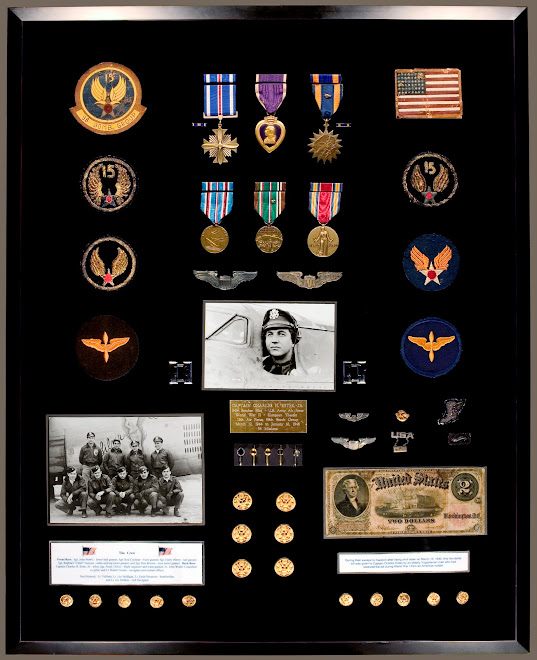



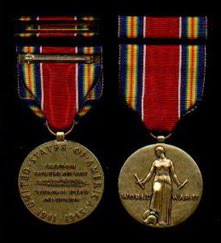


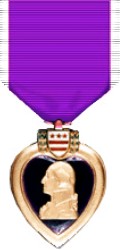

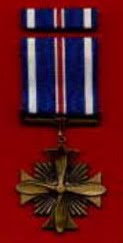
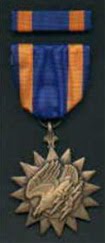
No comments:
Post a Comment